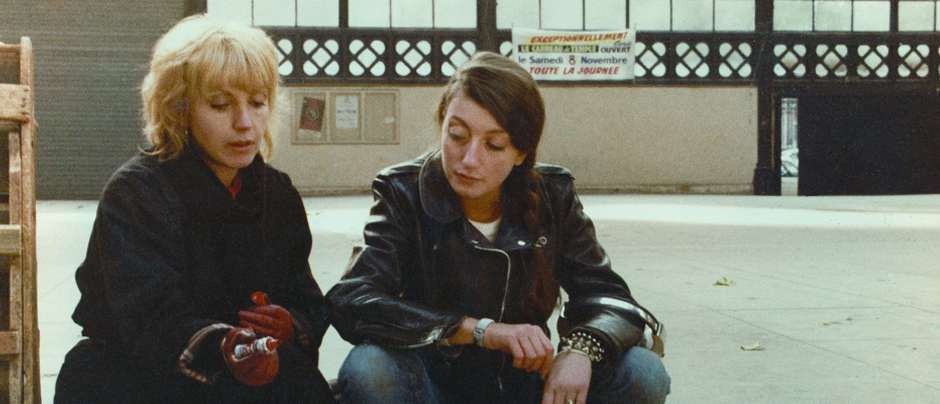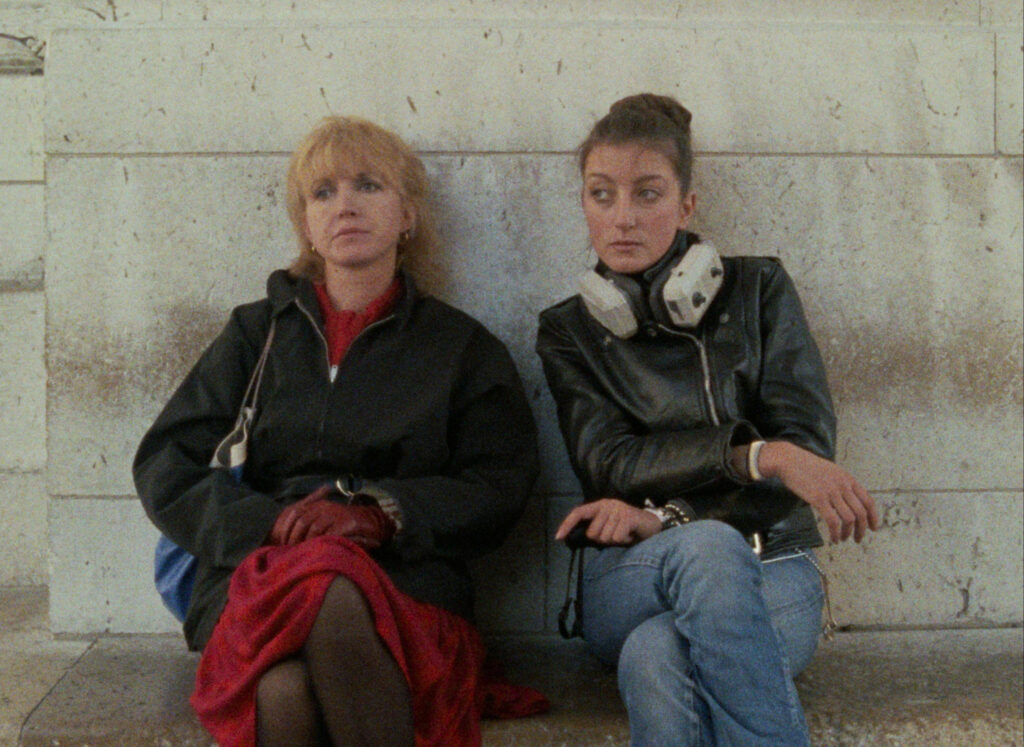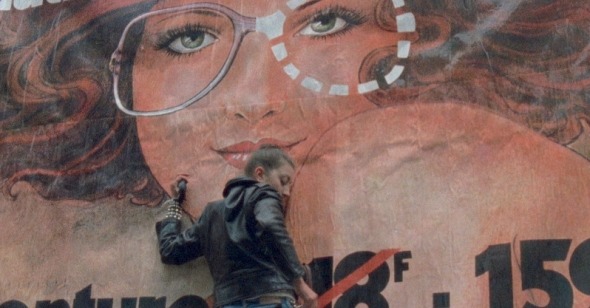
French New Wave, 1981 – Adventure/Thriller/Comedy
Note: for the desired effect, read this with this song on loop
There is a definition I read some time back about the Nouvelle Vague, or the French New Wave of cinema, that I really liked: Truffaut, Godard, Resnais and friends decided at some point to create cheap, mould-breaking and spontaneous cinema about people talking and doing things. Akin to cultural currents of similar nature, the so-said “friends” sought a rupture with the encloistered conventions of the mainstream art (in this case, cinema) imposed. Seems like the history of art has always progressed with somebody with an “Okay Boomer” mentality.
Un-regardless, the French New Wave has carved itself a clear spot in cinema’s imaginery. On the sad side, if a level one cinéphile has an image of French cinema being a black-and-white accordion-sounding, petulant-talking, ugly-featuring, narrative-breaking leadweight, it’s thanks to French New Wave (specifically, Godard’s work from the last 45 years). Nevertheless, anybody with a minimum amount of openness to anything (and probably more people than what you might think) will find themselves fascinated with the youthful, daring pictures the previously mentioned “friends” conceived. If we have a Tarantino, a Scorsese or even a Christopher Nolan, it is thanks to French New Wave’s influence.
Luckily, not all French filmmakers delved into the tangential path of a self-pleasing spiral of movies that ravage any narrative or cohesive nature of cinema like Godard’s work of the last 45 years. Others strived for artistic beauty, self-expression, or just stuck to the very dignifying stance of having fun making movies. My favourite of these “friends”, Jacques Rivette, belongs to the last kind. I have always said that if I ever directed a movie, I would do something like his works.
Rivette quickly defined a set of symbols and rules for his works. While it is true that most of them revolve around people talking and doing things, he dillutes the French New Wave’s premise into the well-known genre tropes and his most prominent symbols: the group of women as main characters, the branching of the plot to loose ends in radically different directions, and the overall slice-of-life pop culture varnish of the conversations. Almost like watching a group of children playing in parallel and occassionally interacting to communicate in ways we adults do not understand, but find endearing and amusing either way.
Le Pont du Nord, Rivette’s film I want to talk about today, takes all this and puts it over the very well-known premise of spy films – a genre that was certainly popular in the algid days of the cold war. Do you find some parallelisms of this with Tarantino’s tendency to interpret the genres he watched as a kid in his own personal view? It should not surprise us his profound admiration towards the French New Wave. But I digress.
In Le Pont du Nord we have a fugitive, a vigilante, a (or many?) double agent(s), a MacGuffin, a knife, a gun, gray morale, telephone booths, a complex mystery involving politics and money and a setting of asphalt, train tracks and concrete that vaguely resembles Paris and also a random rocker talking in Hungarian and a fire-spewing dragon made of metal parts. By the way, the vigilante does karate too. And there is a fight agains the mini-boss and the final showdown against the superboss. This could be a good excuse for a movie night with friends.

And here comes Rivette’s twist. The fugitive and the vigilante are played by Bulle Ogier and Pascale Ogier, who were mother and daughter in real life – and somehow retain these roles in the film. The fugitive (the mother) is Marie and the vigilante (the daughter) is Baptiste. Baptiste is a male name and she keeps on being referred as such through the movie. Baptiste stumbles randomly into Marie thrice (“Once is an accident. Twice is chance. Thrice is destiny” ), while the former was randomly sightseeing (aka, checking all bronze statues depicting lions in Paris ) and the latter trying to manage how to eat without entering any place – the experience in prison made her fearful of interiors. Baptiste then decides to stick to Marie and protect her at all costs, with an ardent faith in her survival exclusively depending on her/him.
Things happen, and Marie’s long-lost boyfriend appears with a suitcase full of stolen papers. Baptiste, watching from afar, notices that her/his unilaterally-proclaimed enemy, the gentlemanly-dressed agent Max, tries to steal said suitcase and replace it with an exact copy whilst the pair is hugging by L’Arc de Triomphe. After this, Marie and Baptiste accidentally start a four day long journey to understand the situation. The stolen papers contain a spiral of deception and assassinations based on a popular European boardgame gigantically summoned over Paris’ city map. Other agents appear, all of them alleged to be the same Max – even if the original Max appears by their side in scene. The movie oscillates between a frantic rhythm and a joyful, carefree ambiance. This movie is infectiously hooking. In this movie, even a rock with a hat has charisma.
What happens with both main characters, I will not spoil. I will just add that this movie is so meticulously planned that even small details make sense in the grand scheme of things. Even the fact that Baptiste starts the first day with her/his hair tied on a bun and ends the fourth day with loose hair makes sense. Paris starts as the touristic Paris, and becomes increasingly a desert of half-destroyed structures. Sometimes, the empty artificial scenarios remind to Shaft’s Monogatari‘s style. You cannot tell if every line of dialogue is a joke or not. Theres is a reference to Kagemusha. And, furthermore, I have the suspect that this movie is just an excuse to show off both actresses in their moments full of glory and tenderness, and the rest was just randomly thrown there. And your mind starts to wonder… what the hell did I just watch? Why does it feel relaxing, slumbering and thrilling at the same time? And why does it give a feeling of childlike joy?
If you have come to this point, you will have for sure felt the hype I had when typing the paragraphs above. Most probably, there exists somebody here who will think, if they end watching Le Pont du Nord, that my heartfelt feelings are just a fistful of bullshit. You are on your right of thinking like this. But this will not erase the fact that Jacques Rivette, verily, turns his filmmaking into an act of playing a game, a game where all players can feel like children having fun again. The world makes not much sense and perhaps we will need to live some years more to understand it, but hell, the moments we spend in it are gonna be an unforgettable ride of pure charisma.
